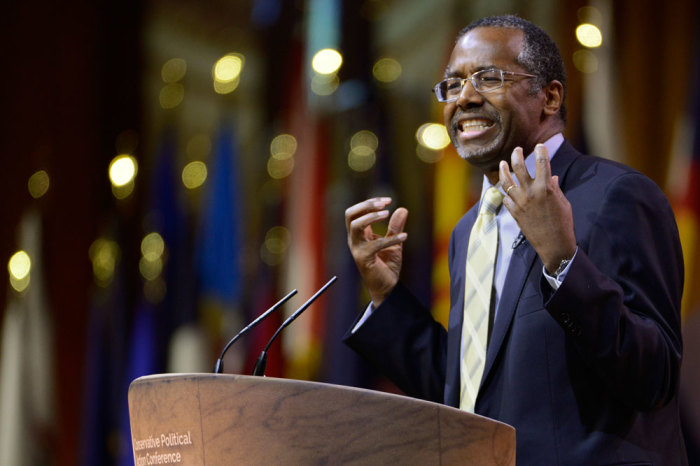Interview: Dr. Ben Carson on 'One Nation,' Political Correctness, and Criticizing Conservatives

Neurosurgeon and philanthropist Dr. Ben Carson seeks to unite Americans with the advice from his newest book. In One Nation: What We Can All Do To Save America's Future, the man who made headlines for his 2013 National Prayer Breakfast speech hopes to unite the country under common principles.
In an interview with The Christian Post, Carson explained that with One Nation, released Tuesday, he hopes to "wake people up to the fact that we are being manipulated by people who want to divide us."
"If you look at the neo-Marxist literature one of the ways they say to bring the United States down is divide and conquer," said Carson.
"And here you see all these wars, race wars, income wars, gender wars. You know, virtually any kind of thing you think of we have a war on it."
Carson added that he wanted "the people to recognize that we the American people are not each other's enemies and the enemies are those people who are attempting to divide us up."
"And I go through great pain to make sure that they know who those people are," said Carson.
Carson talked with CP on Monday about his book and the issues it touched upon, as well as contemporary events in America. Below are excerpts from the interview.
CP: What led you to write the book? The impression was that this was sort of a continuation of your speech at the National Prayer Breakfast.
Carson: I wrote it because I think the time is so short for turning the direction of our country. And I wanted it to come out several months before the November [2014] election so that the people will have a very good impression of what we're fighting for. Understanding that either we're going to have a country that is for, of, and by the people or one that is for, of, and by the government. These are critical decisions that we're making right now.
CP: In the book, there was the occasional mention of "secular progressives" attacking American values. Nevertheless, do you believe that a "secular progressive" can effectively follow the advice laid out in the book?
Carson: Certainly they can because if you look at all the principles that I've laid out they're really more common sense than they are Republican or Democrat. And I think common sense ought to be common. It shouldn't reside in one party or the other and we need to be looking at those things that threaten the viability of the free American way of life.
Personal responsibility, innovation, faith, all those things that made us into a great nation are still readily available and not controlled by someone else.
CP: In the book, you talked about the controversy over your speaking at the Johns Hopkins University graduation ceremony. This year, much has been made about numerous individuals finding their commencement invitations being canceled because of remarks they have made or positions taken. Do you believe this is a rising trend?
Carson: It's just showing how our society is going completely off the rail with political correctness and how incredibly destructive it is. When you have a university, which is supposed to be the epitome of free thinking, trying to constrain all the thinking, and trying to impose their will, and telling students that "we are for free speech as long as you agree with us, but if you think anything else we don't want anything to do with you, and we don't want you to even disseminate what you believe to anyone else," does that even begin to sound like America? Of course not.
CP: You are critical not just of liberals but conservatives in the book. How hard is it to criticize on the record individuals who are ideological peers?
Carson: I think you have to tell the truth. No matter where it lies. And, for instance, if you look at conservatives, who love to ply litmus tests to candidates. And if they don't conform in every circumstance, wash your hands of them. Want nothing to do to with them. Well that's a very short-sighted view, because basically if you say "I'm taking my marbles and going home," you empower the other side. That's exactly what they want you to do."
You have to recognize that somebody who agrees with you 90 percent of the time is going to be much easier to work with than somebody who's diametrically opposed to you 100 percent of the time.
CP: In your book, you did talk about the solutions you have for our country and the direction it is going. Things like having a more tithe-based taxation system. You mentioned some of the efforts you were putting in to getting this to become reality. Would you like to explain further?
Carson: The main thing we have to do is begin the discussion about the fact that our taxation system is the most complex piece probably in the world. Even the Affordable Care Act pales in significance in terms of complexity to our tax code.
I mentioned of course, in the [2013 National Prayer Breakfast], the whole concept of proportionality. If it was good enough for God, it should be good enough for us. You know, if you make a great deal of money, you pay a great deal of money. You make very little money, you pay very little money. And yet you all get the same rights. That to me seems like the fairest possible system.
What we have to do is to start thinking about things that are logical and that make sense.




























